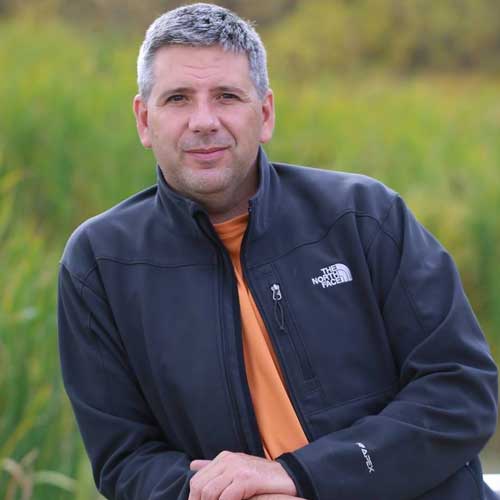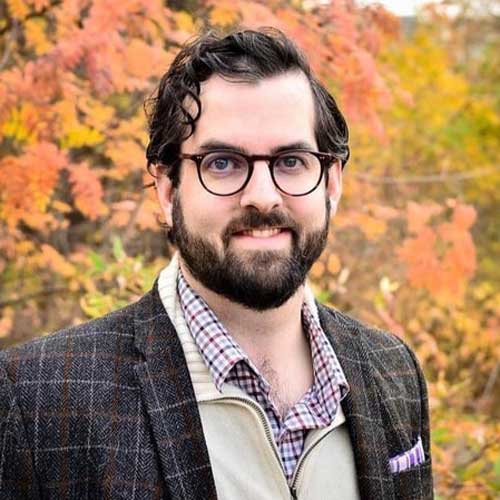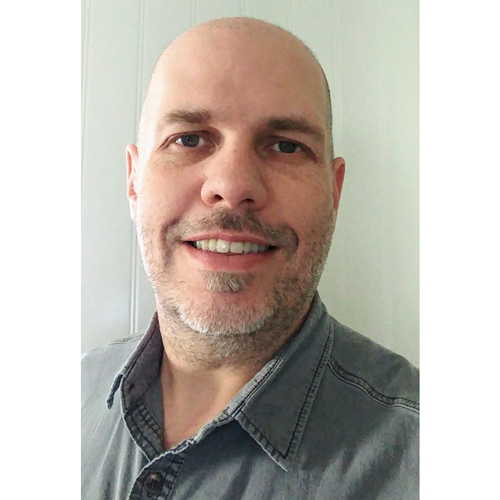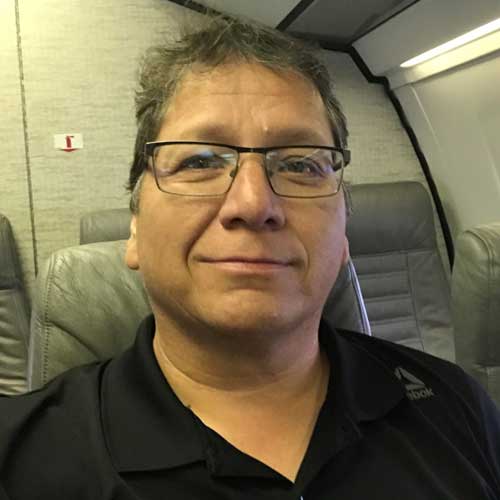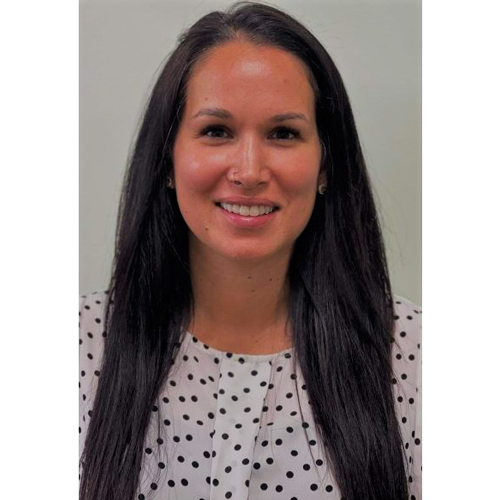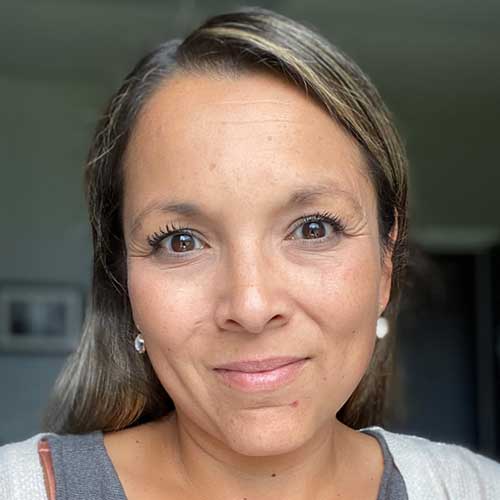Day One: Tuesday, December 7, 2021
10:30 EST
15 minWelcome and Opening Remarks from the Chair
10:45 EST
60 minHomelessness in Rural Canada
I will speak on some touching stories from my personal experiences and others, the largest most important health study you have never heard of, advocating for change and why it’s crucial for mental health supports to end homelessness.
11:45 EST
60 minBarriers to Successfully Developing Affordable Housing
Zain Abedin, Director of Community Development, Rural Development Network
Asad Bhatti, Capital Funding Manager, Rural Development Network
Daniel Morin, Planning & Community Development Specialist, Rural Development Network
Trevor Horne, Community Development Coordinator, Rural Development Network
Jesse Tjepkema, Planning & Research Analyst, Rural Development Network
- We will cover SHI’s background, our process and our Step-by-Step Guide to Developing Affordable Housing
- We will cover a bit of background on the affordable housing space in Canada, such as the National Housing Strategy
- We will host discussion with the participants on the barriers they’ve faced in developing affordable housing
- We will also host discussion with the participants on how barriers to developing affordable housing can be addressed
- We will lastly discuss what resources participants feel would be helpful for organizations to move their projects forward – so that we can communicate that in future work and discussions
12:45 EST
45 minBreak
13:30 EST
60 minCreating opportunities for Indigenous Businesses and Service Providers through Modular Housing Development
Shaun Dyck, Director of Housing, Central Urban Metis Federation Inc.
- An overview of the Round Prairie Elders’ Lodge, which utilized modular building techniques
- How to provide opportunities for Indigenous businesses and service providers.
- Tips on assessing companies that participate in the tendering process
- How to work with their General Contractor to connect them with Indigenous companies that can provide goods and services.
- Ways to maximize economic benefits flowing to Indigenous businesses through housing projects addressing Indigenous housing needs.
14:30 EST
60 minTiny Homes, Big Impact: How a Person-Centered Approach Housing Development Can Transform Lives and Empower Community Wellbeing
Nelson Lepine, Director of Housing and Infrastructure Services, Strategies North
15:30 EST
Closing Remarks from the Chair
Day Two: Wednesday, December 8, 2021
10:30 EST
minWelcome and Opening Remarks from the Chair
10:30 EST
60 minLearn More on How the Primary Purpose of a Housing Policy is to Extend the Life of Your Housing Stock
Scott Flamand, Consultant & Owner, Flamand Management Services
- Developing, implementing and enforcing a housing policy in your community is an effective strategy in extending the life of your housing stock.
- Not only will a housing policy identify when rent is due and how much, but it will also identify tenant responsibilities and First Nation responsibilities regarding maintenance including annual inspections.
- Collecting rent ensures a revenue stream for maintenance, doing annual inspections ensures maintenance is being done, as well as identification of tenant abuse.
- Part of implementing a housing policy includes the education of your members on their responsibilities, as well as when to contact housing for urgent repairs. The education includes simple tasks to prevent mold such as not hanging blankets on windows or not turning the Heating, Ventilation and Air Conditioning (HVAC) system off.
11:30 EST
60 minA Wholistic Approach to Indigenous Housing Solutions
Talia Pfefferle, Mediator / Owner, Red Willow Mediation Services Inc.
- Social determinants of health and the impact on Indigenous housing
- How did we get here?
- Connection to traditional holistic approaches to overall health – taking it back to the original teachings
- Levels of conflict – jurisdictional, organizational, intergenerational
- Imbalance of the whole
- Indigenous mediation approaches to maintaining balance and finding resolution
12:30 EST
45 minBreak
13:15 EST
45 minIndigenous Shelter Funding for Women, Children and 2SLGBTQQIA+ People
- Review CMHC’s 44.8 million, Indigenous specific funding initiative that has already happened, the Shelter Initiative for Indigenous Women and Children.
- This program committed to 12 projects. 10 on reserve for First Nations and 2 in the north. These have been selected already. We will review progress and what we learned in this first round of funding.
- Funding included both construction and operational funding from CMHC and Indigenous Services Canada (ISC) respectively.
- Review CMHC’s 724.1 million, Indigenous specific funding initiative that is ongoing the Indigenous Shelter and Transitional Housing initiative
- This program aims to build an additional 88 Indigenous specific shelters for women, children and 2SLGBTQQIA+ persons over the next 5 years across all of Canada including on-reserve and off, in the north, in the territories, in Inuit Nunangat and in Urban Centres. This funding is available to First Nation, Inuit and Metis proponents.
- Of the 88, 38 will be first stage, emergency shelters and 50 will be transitional housing shelters.
- Funding will include both construction and operational funding from CMCH and Indigenous Services Canada (ISC) respectively.
- Review CMHC’s 250 million, non-indigenous specific funding announced in the budget which can be used for the construction of both first or second stage shelters for women and children and also can be used to repair the existing network of women’s shelters.
14:00 EST
45 min‘Indigenuity’ – Solving Problems Using Indigenous Wisdom and Innovation: How Garden River First Nation is Utilizing Tiny Homes to Support Indigenous Youth
Anne Headrick, Executive Director & Housing Manager, Garden River First Nation
Katrin Sawatzky, Capacity Development Specialist, Indigenous Housing, Garden River First Nation
- Background to Garden River First Nation (GRFN)
- Issues and housing barriers faced by Indigenous Youth
- Overview of Niin Wigwamis (My Little House) – tiny home initiative
- How GRFN is using innovation and Indigenous wisdom to support Indigenous Youth
- Funding partners, stakeholders & fostering a collaborative model
- Anticipated outcomes & next steps
14:45 EST
45 minBreak
15:30 EST
45 minMold
Merv Night, Director, Housing and Infrastructure, Battlefords Agency Tribal Chiefs
- Definition of mold mildew and its forms
- Preventing mold growth on first nation construction planning
- Education of mold
- Discovery of existing mold
- Conclusion
16:15 EST
45 minBarriers to Future Success of FNs Leaders and Communities
- Capacity building of FN’s communities of their own people is number one.. Need a short and long term program that requires starting from a situational analysis of each community by an independent team of each community to give a clear picture of the situation
- Two complete an asset assessment of community present assets they have and what condition they are in, what they need to bring them up to proper level of use. Plus access to the over needs for the community going forward. Development cost based plan and get the Federal government involved to create a budget to address these needs. This includes housing, water, sewage etc.
- Health and social assessment and development plan including dealing with drug booze, abuse by their own people like murder women and children. Have to first address their own internal problems before moving forward. I have seen this in the east and west of Canada. Murder FNs women and kids are mostly caused by their own people according to police and social workers records
- Economic development to get people active in building their own future going forward key to self determination, respect, personal fulfillment, mental health, self satisfaction, remove the history of total dependence on government
- Last India Act has to be re-written to make FN’s full partners in Canada which they are not now and the government keeps them down. Things like self government which Yukon has now. We can fix the past but can write the future to be much much better for all FNs and Canadians. FNs have to move past the past because it is dragging them down, not helping them to move on into a brighter and better future. I wrote a paper on this in 1975 for FNs in NS.
17:00 EST
Closing Remarks from the Chair
